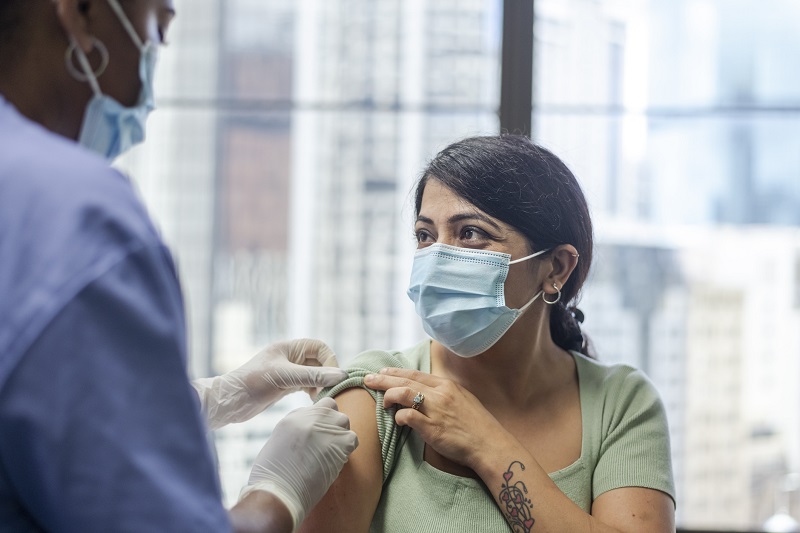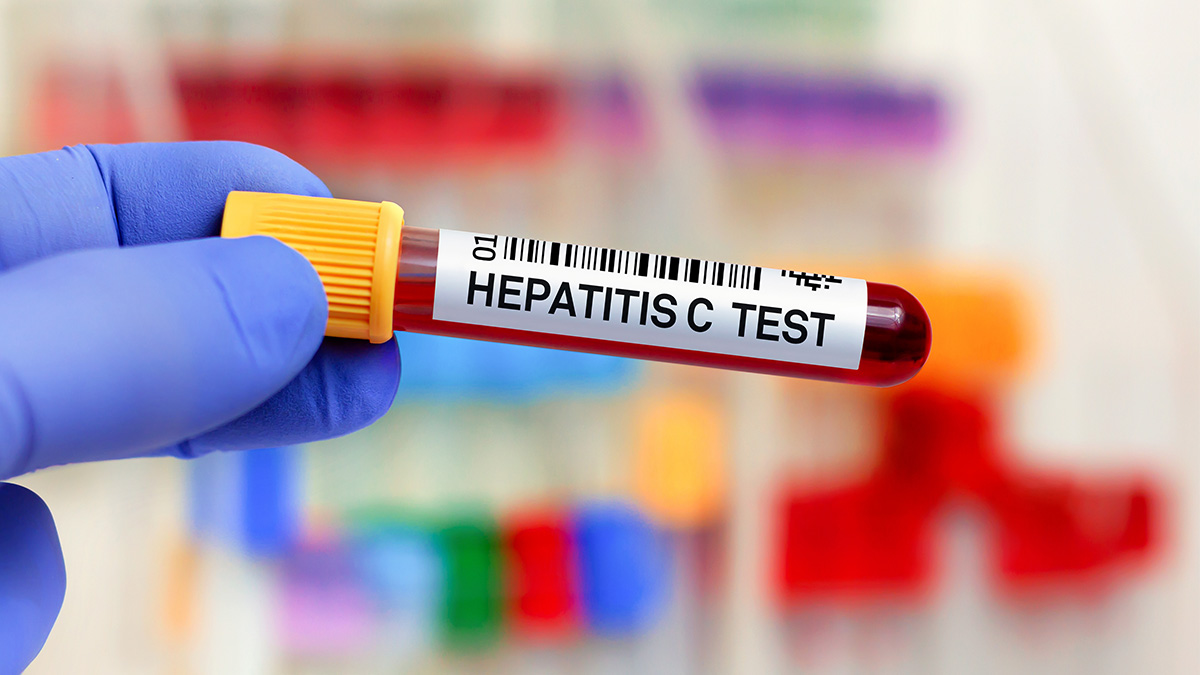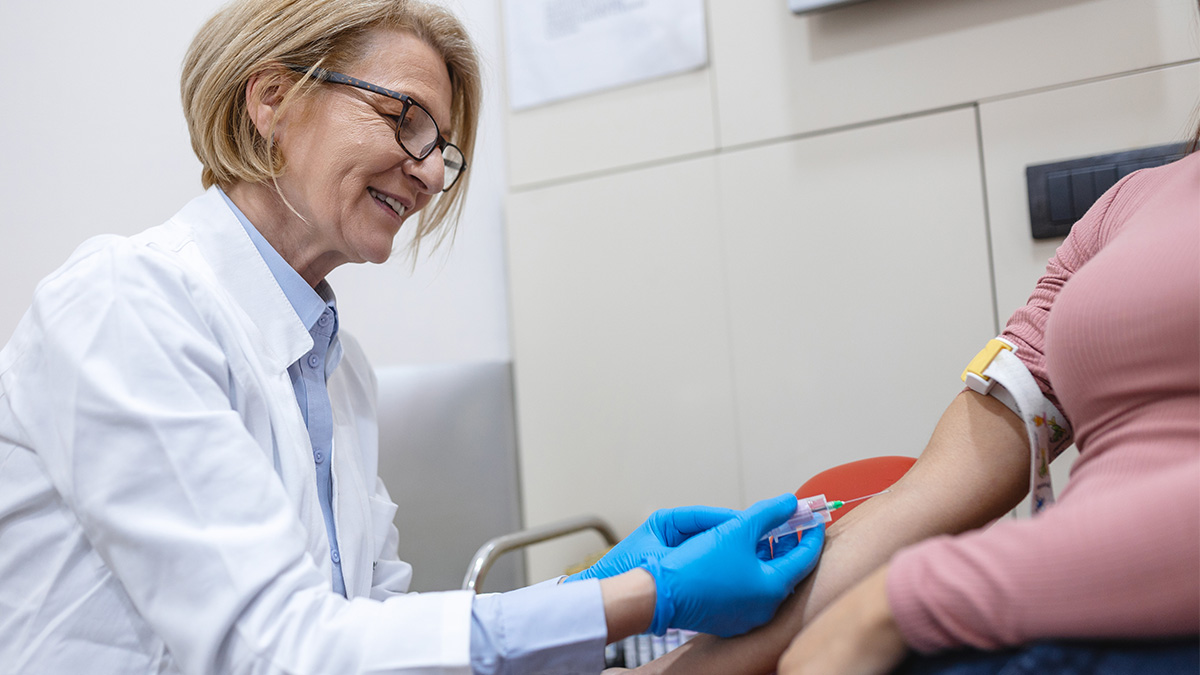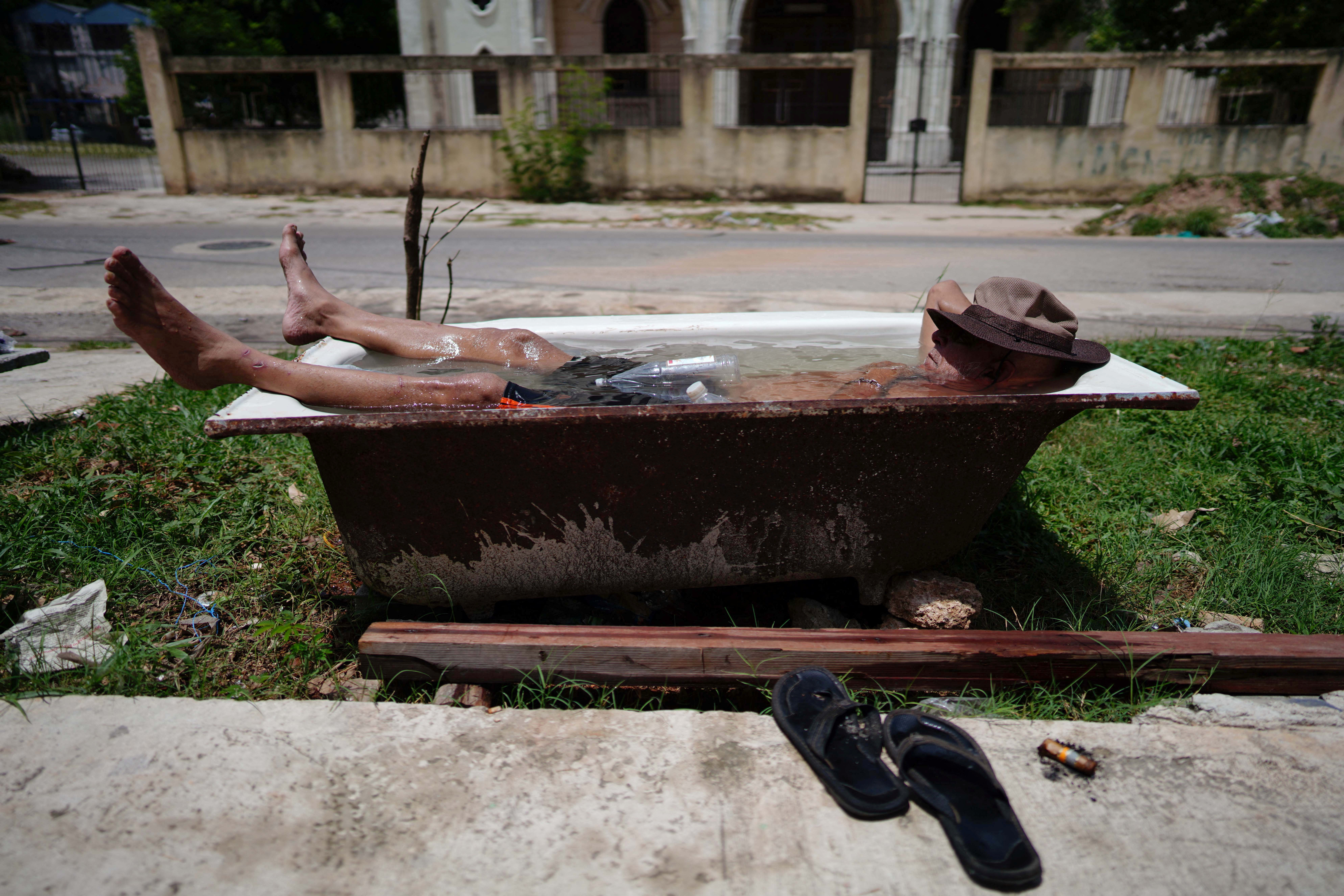Security Alert May 17, 2024
Worldwide caution, update may 10, 2024, information for u.s. citizens in the middle east.
- Travel Advisories |
- Contact Us |
- MyTravelGov |

Find U.S. Embassies & Consulates
Travel.state.gov, congressional liaison, special issuance agency, u.s. passports, international travel, intercountry adoption, international parental child abduction, records and authentications, popular links, travel advisories, mytravelgov, stay connected, legal resources, legal information, info for u.s. law enforcement, replace or certify documents.
Travel.State.Gov Newsroom
U.S. Passports News
International Travel News
U.S. Visas News
Intercountry Adoption News and Notices
Share this page:
Update on Change to U.S. Travel Policy Requiring COVID-19 Vaccination for nonimmigrant travel
Worldwide Visa Operations: Update
Employment-Based Fourth Preference (EB-4) Announcement
Suspension of Visa Services in Sudan
Diversity Visa 2024 Update
Nonimmigrant Visa Fee Increases to Take Effect June 17, 2023
India EB-3 Retrogression
Expiration of Covid-Era Visa Application Fee Receipts
Digital Visa Authorization (DVA) Proof of Concept
Final Rule Governing Public Charge Grounds of Visa Ineligibility
Visa Waiver Travel for Israeli Citizens
Important Update on Waivers of the Interview Requirement for Certain Nonimmigrant Visa Applicants
Department of State to Process Domestic Visa Renewals in Limited Pilot Program
Visa Information for Nationals of Haiti
Department of State/AILA Liaison Committee Meeting March 20, 2024
The Administration will end the COVID-19 vaccine requirements for international air travelers at the end of the day on May 11, the same day that the COVID-19 public health emergency ends. This means starting May 12, noncitizen nonimmigrant air passengers will no longer need to show proof of being fully vaccinated with an accepted COVID-19 vaccine to board a flight to the United States. CDC’s Amended Order Implementing Presidential Proclamation on Safe Resumption of Global Travel During the COVID-19 Pandemic will no longer be in effect when the Presidential Proclamation Advancing the Safe Resumption of Global Travel During the COVID-19 Pandemic is revoked .
Please see: https://www.whitehouse.gov/briefing-room/statements-releases/2023/05/01/the-biden-administration-will-end-covid-19-vaccination-requirements-for-federal-employees-contractors-international-travelers-head-start-educators-and-cms-certified-facilities/
External Link
You are about to leave travel.state.gov for an external website that is not maintained by the U.S. Department of State.
Links to external websites are provided as a convenience and should not be construed as an endorsement by the U.S. Department of State of the views or products contained therein. If you wish to remain on travel.state.gov, click the "cancel" message.
You are about to visit:
An official website of the United States government
Here’s how you know
Official websites use .gov A .gov website belongs to an official government organization in the United States.
Secure .gov websites use HTTPS A lock ( Lock Locked padlock icon ) or https:// means you’ve safely connected to the .gov website. Share sensitive information only on official, secure websites.

COVID-19 international travel advisories
If you plan to visit the U.S., you do not need to be tested or vaccinated for COVID-19. U.S. citizens going abroad, check with the Department of State for travel advisories.
COVID-19 testing and vaccine rules for entering the U.S.
- As of May 12, 2023, noncitizen nonimmigrant visitors to the U.S. arriving by air or arriving by land or sea no longer need to show proof of being fully vaccinated against COVID-19.
- As of June 12, 2022, people entering the U.S. no longer need to show proof of a negative COVID-19 test .
U.S. citizens traveling to a country outside the U.S.
Find country-specific COVID-19 travel rules from the Department of State.
See the CDC's COVID-19 guidance for safer international travel.
LAST UPDATED: May 23, 2024
Have a question?
Ask a real person any government-related question for free. They will get you the answer or let you know where to find it.
Mobile Menu Overlay
The White House 1600 Pennsylvania Ave NW Washington, DC 20500
Fact Sheet: Biden Administration Releases Additional Detail for Implementing a Safer, More Stringent International Air Travel System
As we continue to work to protect people from COVID-19, today, the Biden Administration is releasing additional detail around implementation of the new international air travel policy requiring foreign national travelers to the United States to be fully vaccinated. This updated policy puts in place an international travel system that is stringent, consistent across the globe, and guided by public health. Starting on November 8, non-citizen, non-immigrant air travelers to the United States will be required to be fully vaccinated and to provide proof of COVID-19 vaccination status prior to boarding an airplane to fly to the U.S., with only limited exceptions. The updated travel guidelines also include new protocols around testing. To further strengthen protections, unvaccinated travelers – whether U.S. Citizens, lawful permanent residents (LPRs), or the small number of excepted unvaccinated foreign nationals – will now need to test within one day of departure. Today, the Administration is releasing the following documents to implement these requirements: 1) a Presidential Proclamation to Advance the Safe Resumption of Global Travel During the COVID-19 Pandemic; 2) three Centers for Disease Control and Prevention (CDC) Orders on vaccination, testing, and contact tracing; and 3) technical instructions to provide implementation details to the airlines and their passengers. With science and public health as our guide, the United States has developed a new international air travel system that both enhances the safety of Americans here at home and enhances the safety of international air travel. The additional detail released today provides airlines and international air travelers with time to prepare for this new policy ahead of the November 8 implementation date. As previously announced, fully vaccinated foreign nationals will also be able to travel across the Northern and Southwest land borders for non-essential reasons, such as tourism, starting on November 8. Additional detail on amendments to restrictions with respect to land borders will be available in the coming days. Travelers can find full details about today’s air travel announcement on the CDC and Department of State websites. A summary is below: Fully Vaccinated Status:
- Starting on November 8, non-citizen, non-immigrant air travelers to the United States will be required to be fully vaccinated and to provide proof of vaccination status prior to boarding an airplane to fly to the U.S.
Proof of Vaccination:
- For foreign nationals, proof of vaccination will be required – with very limited exceptions – to board the plane.
- Match the name and date of birth to confirm the passenger is the same person reflected on the proof of vaccination;
- Determine that the record was issued by an official source (e.g., public health agency, government agency) in the country where the vaccine was given;
- Review the essential information for determining if the passenger meets CDC’s definition for fully vaccinated such as vaccine product, number of vaccine doses received, date(s) of administration, site (e.g., vaccination clinic, health care facility) of vaccination.
- The Biden Administration will work closely with the airlines to ensure that these new requirements are implemented successfully.
Accepted Vaccines:
- CDC has determined that for purposes of travel to the United States, vaccines accepted will include FDA approved or authorized and World Health Organization (WHO) emergency use listed (EUL) vaccines.
- Individuals can be considered fully vaccinated ≥2 weeks after receipt of the last dose if they have received any single dose of an FDA approved/authorized or WHO EUL approved single-dose series (i.e., Janssen), or any combination of two doses of an FDA approved/authorized or WHO emergency use listed COVID-19 two-dose series (i.e. mixing and matching).
- More details are available in the CDC Annex here .
Enhanced Testing:
- Previously, all travelers were required to produce a negative viral test result within three days of travel to the United States.
- Both nucleic acid amplification tests (NAATs), such as a PCR test, and antigen tests qualify.
- As announced in September, the new system tightens those requirements, so that unvaccinated U.S. Citizens and LPRs will need to provide a negative test taken within one day of traveling.
- That means that all fully vaccinated U.S. Citizens and LPRs traveling to the United States should be prepared to present documentation of their vaccination status alongside their negative test result.
- For those Americans who can show they are fully vaccinated, the same requirement currently in place will apply – they have to produce a negative test result within three days of travel.
- For anyone traveling to the United States who cannot demonstrate proof of full vaccination, they will have to produce documentation of a negative test within one day of departure.
Requirements for Children:
- Children under 18 are excepted from the vaccination requirement for foreign national travelers, given both the ineligibility of some younger children for vaccination, as well as the global variability in access to vaccination for older children who are eligible to be vaccinated.
- Children between the ages of 2 and 17 are required to take a pre-departure test.
- If traveling with a fully vaccinated adult, an unvaccinated child can test three days prior to departure (consistent with the timeline for fully vaccinated adults). If an unvaccinated child is traveling alone or with unvaccinated adults, they will have to test within one day of departure.
Limited Exceptions from the Vaccination Requirement:
- There are a very limited set of exceptions from the vaccination requirement for foreign nationals. These include exceptions for children under 18, certain COVID-19 vaccine clinical trial participants, those with medical contraindications to the vaccines, those who need to travel for emergency or humanitarian reasons (with a US government-issued letter affirming the urgent need to travel), those who are traveling on non-tourist visas from countries with low-vaccine availability (as determined by the CDC), and other very narrow categories.
- Those who receive an exception will generally be required to attest they will comply with applicable public health requirements, including, with very limited exceptions, a requirement that they be vaccinated in the U.S. if they intend to stay here for more than 60 days.
Contact Tracing:
- The CDC is also issuing a Contact Tracing Order that requires all airlines flying into the United States to keep on hand – and promptly turn over to the CDC, when needed – contact information that will allow public health officials to follow up with inbound air travelers who are potentially infected or have been exposed to someone who is infected.
- This is a critical public health measure both to prevent the introduction, transmission, and spread of new variants of COVID-19 as well as to add a critical prevention tool to address other public health threats.
Stay Connected
We'll be in touch with the latest information on how President Biden and his administration are working for the American people, as well as ways you can get involved and help our country build back better.
Opt in to send and receive text messages from President Biden.
- Credit cards
- View all credit cards
- Banking guide
- Loans guide
- Insurance guide
- Personal finance
- View all personal finance
- Small business
- Small business guide
- View all taxes
You’re our first priority. Every time.
We believe everyone should be able to make financial decisions with confidence. And while our site doesn’t feature every company or financial product available on the market, we’re proud that the guidance we offer, the information we provide and the tools we create are objective, independent, straightforward — and free.
So how do we make money? Our partners compensate us. This may influence which products we review and write about (and where those products appear on the site), but it in no way affects our recommendations or advice, which are grounded in thousands of hours of research. Our partners cannot pay us to guarantee favorable reviews of their products or services. Here is a list of our partners .
Ask a Travel Nerd: Can I Travel Without a COVID Vaccine?

Many or all of the products featured here are from our partners who compensate us. This influences which products we write about and where and how the product appears on a page. However, this does not influence our evaluations. Our opinions are our own. Here is a list of our partners and here's how we make money .
Table of Contents
Domestic travel for unvaccinated travelers
International travel for unvaccinated travelers, final thoughts on traveling without a covid vaccine.
Between constantly changing entry requirements, mandated quarantines, testing rules and vaccine provisions, traveling during the COVID-19 pandemic isn’t easy. If you’re not vaccinated, it's even harder. Some countries flat-out don’t admit unvaccinated travelers, while others require a mandatory quarantine and extra tests.
If you plan on traveling and aren't vaccinated, here’s what you need to know.
As recently as Jan. 12, the Centers for Disease Control and Prevention continues to recommend delaying travel until you’re fully vaccinated.
Requirements are up to each city and state. For example, while Illinois doesn’t have statewide restrictions, its recommendations differ based on the daily COVID-19 case rates of the state the traveler is arriving from. Unvaccinated travelers arriving from states with higher case rates are encouraged to secure a negative COVID-19 test taken within 72 hours of travel to Illinois. At the city level, unvaccinated travelers going to Chicago are asked to get tested for COVID-19 before and after arrival and to quarantine upon arrival.
Meanwhile, all travelers 16 and older who enter California via Los Angeles International Airport, Van Nuys Airport or Los Angeles Union Station are required to fill out a City of Los Angeles Traveler Form, agreeing to follow CDC travel guidance — or face up to a $500 fine.
Other states may be more flexible and have no recommendations or requirements related to vaccination, quarantine, forms or testing for visitors.
Tips for traveling domestically without a vaccine
If the required time frame for getting a COVID-19 test ahead of travel is less than 24 hours, check if an urgent care center near you offers a rapid results option. In addition, check if a PCR and/or antigen test will be accepted. Generally, results from an antigen test can be provided faster. If you have insurance, the test may be covered.
Before heading to your intended destination, check the city and state requirements and recommendations, because they may differ (like Chicago and Illinois). Find out if your destination has any special requirements based on the state you’re arriving from.
Some businesses require proof of vaccination for entry. Be prepared to be turned away from restaurants, bars, stores and other establishments if this is the case.
Check if there are any ongoing testing requirements. For example, unvaccinated travelers staying in Puerto Rico longer than a week must submit weekly COVID-19 test results.
» Learn more: The majority of Americans plan to travel this year, according to recent NerdWallet study
Traveling internationally may present a greater number of obstacles, especially due to different systems and a potential language barrier. Some countries don't allow unvaccinated travelers to enter, period . For example, travel to the majority of European countries is possible only to those who are vaccinated. If you’re not vaccinated, make sure the country you want to visit will allow you entry.
In addition, before returning to the U.S., you’re required to provide proof of a negative COVID-19 test taken within one day of the flight's departure. While abroad, you’ll need to go to a COVID-19 testing center. Unlike getting tested in the U.S., COVID-19 tests abroad aren't covered by insurance, so you'll need to budget for the out-of-pocket cost .
Furthermore, you should book your accommodations wisely. Does the hotel you want to stay at allow unvaccinated guests? Will you be able to dine at the hotel restaurant? Can you use the spa or gym facilities? These are important questions you’ll need to consider before booking an international hotel stay.
Scrutinize your access to activities and other places you’d like to visit during your trip, too, like restaurants and museums. On my recent trip to Germany, I had to show my proof of vaccination and identification in every bar, restaurant, shop and hotel I entered.
If you’re unvaccinated, you may be refused entry to all these places, which can ruin your trip.
Tips for traveling internationally without a vaccine
Get travel insurance with Cancel For Any Reason coverage since entry requirements are changing constantly. What happens if you book a nonrefundable flight and hotel, and a week before your departure, your destination stops allowing in unvaccinated travelers? If you have travel insurance with CFAR, you’ll be able to cancel your trip and get your nonrefundable deposits back so long as changes aren’t made at the last minute. For example, with CFAR coverage from Berkshire Hathaway Travel Protection, "you may only be eligible if you purchase CFAR at the time of your base policy purchase, insure your full trip cost, and cancel more than 48 hours prior to departure," according to the company's website.
Confirm entry eligibility for your must-have experiences, like restaurants, museums, shopping malls or bars and clubs. Double-check that your hotel will allow you entry as well.
Research COVID-19 testing sites in the area before departure. Will you need to travel far to get your test? Consider travel time when making a test appointment.
Check if there's an app that your destination country uses that will accept your pre-departure negative COVID-19 test result. This step could make it easier to visit any bars, hotels, shops, restaurants and museums you’d like to check out.
Traveling domestically and internationally may pose a new set of challenges for those who are unvaccinated. Be sure to keep up to date with the latest requirements to make sure that your trip goes smoothly. International travel may result in many more difficulties, so if you’re not prepared to deal with all the uncertainties of being abroad, consider travel to a location within the U.S.
How to maximize your rewards
You want a travel credit card that prioritizes what’s important to you. Here are our picks for the best travel credit cards of 2023 , including those best for:
Flexibility, point transfers and a large bonus: Chase Sapphire Preferred® Card
No annual fee: Bank of America® Travel Rewards credit card
Flat-rate travel rewards: Capital One Venture Rewards Credit Card
Bonus travel rewards and high-end perks: Chase Sapphire Reserve®
Luxury perks: The Platinum Card® from American Express
Business travelers: Ink Business Preferred® Credit Card

on Chase's website
1x-5x 5x on travel purchased through Chase Travel℠, 3x on dining, select streaming services and online groceries, 2x on all other travel purchases, 1x on all other purchases.
75,000 Earn 75,000 bonus points after you spend $4,000 on purchases in the first 3 months from account opening. That's over $900 when you redeem through Chase Travel℠.

1.5%-5% Enjoy 5% cash back on travel purchased through Chase Travel, 3% cash back on drugstore purchases and dining at restaurants, including takeout and eligible delivery service, and unlimited 1.5% cash back on all other purchases.
Up to $300 Earn an additional 1.5% cash back on everything you buy (on up to $20,000 spent in the first year) - worth up to $300 cash back!

on Capital One's website
2x-5x Earn unlimited 2X miles on every purchase, every day. Earn 5X miles on hotels and rental cars booked through Capital One Travel, where you'll get Capital One's best prices on thousands of trip options.
75,000 Enjoy a one-time bonus of 75,000 miles once you spend $4,000 on purchases within 3 months from account opening, equal to $750 in travel.

- Skip to main content
- Keyboard shortcuts for audio player

Coronavirus Updates
Cdc says travel is safe for fully vaccinated people, but opposes nonessential trips.
Rachel Treisman

The Centers for Disease Control and Prevention updated its domestic travel guidance for fully vaccinated people on Friday, lifting certain requirements while continuing to advise mitigation measures like mask-wearing and hand-washing. Angus Mordant/Bloomberg via Getty Images hide caption
The Centers for Disease Control and Prevention updated its domestic travel guidance for fully vaccinated people on Friday, lifting certain requirements while continuing to advise mitigation measures like mask-wearing and hand-washing.
The Centers for Disease Control and Prevention has updated its domestic travel guidance for fully vaccinated people, lifting certain testing and self-quarantine requirements and recommending precautions like wearing a mask and avoiding crowds. But health officials continue to discourage nonessential travel, citing a sustained rise in cases and hospitalizations.
The CDC updated its website on Friday to reflect the latest scientific evidence, writing that "people who are fully vaccinated with an FDA-authorized vaccine can travel safely within the United States."
The announcement comes less than a month after the CDC first released updated guidance about gatherings for fully vaccinated people, which it described as a "first step" toward returning to everyday activities.
Air Travel Is Opening Up Again, But That Doesn't Mean The Pandemic Is Over
The CDC considers someone fully vaccinated two weeks after they receive the last dose of vaccine. Those individuals will no longer need to get tested before or after travel unless their destination requires it, and do not need to self-quarantine upon return.
The new guidance means, for example, that fully vaccinated grandparents can fly to visit their healthy grandkids without getting a COVID-19 test or self-quarantining as long as they follow other recommended measures while traveling, according to CDC Director Rochelle Walensky.
Those measures include wearing a mask over their nose and mouth, staying 6 feet from others and washing their hands frequently. Masks are required on all planes traveling into, within or out of the U.S., under an executive order issued by President Biden.
But Walensky, speaking at a White House COVID-19 Response Team briefing on Friday, nonetheless discouraged all nonessential travel, citing a continued increase in the seven-day average of cases and hospitalizations.
"While we believe that fully vaccinated people can travel at low risk to themselves, CDC is not recommending travel at this time due to the rising number of cases," Walensky said.

CDC Director Fears 'Impending Doom' If U.S. Opens Too Quickly
She said that while vaccinated people can do more things safely, most Americans are not yet fully vaccinated. Those who are not must have a negative test 1-3 days before they travel under CDC guidance. They must either get tested 3-5 days after they return and self-quarantine for 7 days, or self-quarantine for 10 days with no test.
Walensky said on Monday that there is more travel occurring now than throughout the pandemic, including the winter holidays. She acknowledged that people have been looking to get away over spring break or take advantage of what they perceive as a "relative paucity in cases," and she said the country was seeing an uptick in cases as a result.
"The thing that's different this time is that we actually have it in our power to be done with the scale of the vaccination," she said. "And that will be so much slower if we have another surge to deal with as well."
The U.S. is already seeing an uptick in domestic travel, and many Americans are looking to book trips in the coming months in what experts described to NPR as a sign of "clear pent up demand for travel."
As the country's supply of COVID-19 doses has grown, so has Biden's goal for the number of shots in arms during his first 100 days, doubling the target to 200 million by the end of this month. Many states have already expanded eligibility to all adults or are set to do so in the coming weeks, well ahead of the president's May 1 deadline.
According to NPR's vaccine tracker , 16.9% of the U.S. population is fully vaccinated, and 30% has had at least one dose. Researchers estimate that 70% to 85% of the country would need to have immunity for COVID-19 to stop spreading through communities.
International travel restrictions remain
The CDC is not lifting travel restrictions barring the entry of most non-U.S. citizens from places including China, Brazil, South Africa and parts of Europe. It will continue to require airline passengers entering the U.S. to get a test within three days of their departure and show proof of a negative result before boarding.
The travel industry has been pushing for some of these restrictions to end. A group of 26 organizations sent a letter to White House COVID-19 czar Jeffrey Zients urging the federal government "to partner with us to develop, by May 1, 2021, a risk-based, data-driven roadmap to rescind inbound international travel restrictions."

While Some Spring Breakers Swarm Beaches, Many Stay Home, Dreaming Of Summer Travel
"To be clear, at this time, we do not support removal or easing of core public health protections, such as the universal mask mandate, inbound international testing requirement, physical distancing or other measures that have made travel safer and reduced transmission of the virus," they wrote. "However, the data and science demonstrate that the right public health measures are now in place to effectively mitigate risk and allow for the safe removal of entry restrictions."
Travel and tourism have taken a considerable hit because of the pandemic with industry groups noting that overseas travel to the U.S. declined by 81% in 2020, causing billions of dollars in losses. Without lifting international travel bans, the U.S. Travel Association estimates that some 1.1 million American jobs will not be restored and billions in spending will be lost by the end of the year.
"Fortunately, enough progress has been made on the health front that a rebound for domestic leisure travel looks possible this year, but that alone won't get the job done," Roger Dow, the association's president and CEO, said in a statement . "A full travel recovery will depend on reopening international markets, and we must also contend with the challenge of reviving business travel."

Fauci Expects Surge In Vaccinations To Keep A 4th Coronavirus Wave At Bay
- Centers for Disease Control and Prevention
- COVID-19 vaccine
- Inspiration
- Destinations
- Places To Stay
- Style & Culture
- Food & Drink
- Wellness & Spas
- News & Advice
- Partnerships
- Traveller's Directory
- Travel Tips
- Competitions
The countries you can travel to without a vaccine
By Abigail Malbon

Travel around the world is easier now, particularly for those who are fully vaccinated with an approved Covid vaccine – but some countries are allowing unvaccinated travellers to enter. Yet with restrictions constantly changing, how do the latest rules affect those who aren't fully vaccinated, and which countries are allowing tourists to enter if they're unvaccinated?
Where can I travel unvaccinated?
There are currently a number of countries that will allow visitors who have not been vaccinated to enter. A few of them are in Europe , and the others are slightly farther afield. We recommend always closely following UK health guidance, including having your Covid vaccine and booster if you are able to. Before travelling, you should regularly check government guidelines both for the country you might be considering visiting and for the UK when you return.
You can find the full list of countries allowing people to enter without a vaccine below:
Since 1 May 2022, unvaccinated travellers are able to visit the country without proof of a negative PCR or rapid antigen test. Passenger locator forms are also no longer required.
Arrivals may, however, be required to undergo a rapid Covid test on arrival. If you test positive on arrival in Greece, you (and those you are travelling with) will have to self-isolate for at least five days, either at home or in a hotel (this will be paid for by the Greek state). If you have no symptoms on day five you will be allowed to leave quarantine.
For holiday inspiration, see our guide to the best Greek Islands to visit .
Read the rules on travel to Greece .
2. Portugal and Madeira
Portugal ’s mainland and Madeira are open to travellers who have not been vaccinated, as long as they can prove they don't have coronavirus when they enter the country. To enter mainland Portugal, you will be required to show proof of a negative PCR test taken within 72 or an antigen test taken within 24 hours of departure for the country as well as complete and submit a traveller questionnaire before departure for the country. Self-administered tests are not accepted. Your temperature will also be screened on arrival.
To enter Madeira, you must register on the Madeira Safe travellers platform and download a QR code to present to airport staff on arrival. You must provide proof of a negative antigen test taken within 48 hours of departure that has been administered by a trained healthcare professional.
Your airline may deny boarding if you cannot show one of these documents when you check in for your flight. Check with your airline before you travel.
Read the rules on travel to Portugal .

Unvaccinated adult travellers can enter Spain if they are able to show proof of a negative test taken before entering the country. Previously, only fully vaccinated travellers aged 12 and over could enter Spain from the UK, but the destination has relaxed rules slightly, so it is now accepting negative PCR tests taken in the 72 hours before departure for the country or negative antigen tests taken in the 24 hours before departure for the country in lieu of full vaccination in adults. However, those who cannot meet either criteria will not be able to enter.
As of 1 February, you need to have received your second jab between 14 and 270 days before travel to Spain and the Canary Islands to be classed as fully vaccinated. Children aged 12-17 no longer need to show proof of a vaccine, but will need a negative PCR test to enter.
Read the rules on travel to Spain .
Unvaccinated travellers can enter Croatia without showing proof of a vaccine or negative test. The requirement to fill out a passenger locator form also no longer exists.
Read the rules on travel to Croatia .
Unvaccinated travellers to Cyprus must provide proof of a negative PCR test taken within 72 hours before departure for the country or an antigen test taken in the 24 hours before departure for the country. Travellers over 12 may then be asked to take another PCR test upon arrival at Larnaca or Paphos airports, and remain in isolation until the result comes back (this should take roughly three hours). This costs €15–€19 and must be paid for by the traveller.
Read the rules on travel to Cyprus .
If you are unvaccinated and over 12 years old, you must provide a negative PCR test result taken within 72 hours or an antigen test result taken within 48 hours pre-departure for entry to France.
Read the rules on travel to France .
7. Maldives
All travellers to the Maldives must fill in a Traveller Declaration form in the 72 hours prior to departure. A PCR test is no longer required regardless of vaccination status.
Read the rules on travel to the Maldives .
Unvaccinated tourists entering Italy from the UK must show a negative PCR test taken within 48 hours before entering, or a negative lateral flow test taken within 48 hours before entering. The requirement to fill in a passenger locator form has now been lifted.
Read the rules on travel to Italy .
9. Dubai and United Arab Emirates
You do not have to be fully vaccinated to visit the UAE. Unvaccinated arrivals to the Emirates must present evidence of a negative PCR test taken 48 hours before departure. Unvaccinated travellers from the UK to Dubai may be required to have a Covid-19 PCR test on arrival.
Read the rules on travel to Dubai .
10. Slovenia
Unvaccinated British travellers to Slovenia must provide a Digital Passenger Locator Form, but are not required to show proof of a negative test or vaccination to enter.
You do not need to be fully vaccinated to visit Turkey, but you must be able to show proof of a negative PCR test (taken no more than 72 hours before entry), rapid antigen test (taken no more than 48 hours before entry), or proof of a recent recovery from Covid-19 within the last six months. Arrivals into the country should also show an online form completed 72 hours before travel and will be subject to a medical evaluation for symptoms of coronavirus, including temperature checks. Arrivals may be subject to random PCR testing on arrival.

By Coral Sisk

By Lydia Bell

By Olivia Morelli

By Mary Lussiana
You must wear a face mask at all times while in an airport and for the duration of all flights, to and from Turkey.
Read the rules on travel to Turkey .
Mexico does not currently require visitors to show a negative PCR test or quarantine on arrival. Resorts are also able to request guests fill in a health questionnaire on arrival.
Read the rules on travel to Mexico .
13. Ireland
If you are travelling to Ireland as of Sunday 6 March 2022, you do not need to show any proof of vaccination, proof of recovery, negative test or passenger locator form.
Read the rules on travel to Ireland .
As of Friday 1 April 2022, UK travellers visiting Sweden are no longer required to present a negative Covid-19 test or proof of vaccination.
15. Seychelles
Travellers are able to enter Seychelles regardless of vaccination status, but must present a negative PCR test taken within 72 hours prior to departure for the country or a rapid antigen test done within 24 hours. There is no requirement to quarantine on arrival, but travellers must stay in approved accommodation.
16. Bahamas
Unvaccinated travellers aged 12 and over must show a negative PCR test taken no more than 72 hours prior to the date of arrival to The Bahamas. All visitors of any age must submit a Bahamas Travel Health Visa Trip application. Seventeen-year-olds and under must be included in a parent or guardian’s profile.
All travellers to Egypt must complete a declaration form before entering the country. Unvaccinated travellers are required to show either a negative PCR test, taken no more than 72 hours before arrival in Egypt, or a rapid antigen test. Proof of Covid-19 recovery will not be accepted.
18. Cape Verde
You do not need to be fully vaccinated to enter Cape Verde, but you do need to be able to prove that you don't have Covid, either with a negative PCR test taken 72 hours before departure for the country or a lateral flow test taken 48 hours, when you check-in for your flight to Cape Verde.
19. Iceland
On 25 February 2022 all Covid restrictions were removed, including domestic rules. This means you do not need to test or show proof of vaccination status to enter the country.
20. Luxembourg
All travellers to Luxembourg need to fill in a passenger locator form before their flight. Those who are not vaccinated need to show proof of a negative PCR test taken no more than 48 hours before their flight, or a negative lateral flow test taken no more than 24 hours before. If you’re not fully vaccinated but have tested positive for Covid in the last year you can show proof of recovery to enter.
The travel restrictions upon entry into Norway have been lifted, which means that the same rules as before the pandemic now apply.
Read the rules on travel to Norway .
22. Sri Lanka
Covid travel insurance is mandatory for all visitors, and unvaccinated travellers need to show proof of a negative PCR test taken no more than 72 hours before their flight, or a negative lateral flow test taken no more than 48 hours before – be aware that self-swab tests are not recognised.
23. South Africa
Travellers to South Africa must present proof of a negative PCR test taken no more than 72 hours before departure for the country. You may be screened on arrival.
Read the rules on travel to South Africa .
Unvaccinated travellers to Belize must present a negative PCR test taken within 72 hours before arrival, or a negative antigen test taken in the 48 hours before arrival. You may also opt to take a rapid test at the airport, at a cost of BZ$100 or US$50 (which must be paid in cash). If you test positive, you will be required to quarantine at your own cost. Foreign tourists are required to pay BZ$36 (US$18) for Belize Travel Health Insurance – this is mandatory even if you already have personal travel insurance and helps protect against incurred medical and non-medical expenses should you test positive for Covid during your stay in Belize.
There are no direct flights from the UK to Belize, so it's important to check the rules of the country you will be transiting through too.
25. Costa Rica
Since 1 April 2022 there have been no requirements for entry to Costa Rica in regards to coronavirus. However, the government acknowledges that these may be brought back at short notice, in which case travellers should always check guidance before their trip.
Since 6 April 2022, there have been no requirements for travellers from the UK to show either a Covid vaccination or Covid test when entering Cuba. However, random testing is still being carried out at airports, and anyone who tests positive will be moved to quarantine in a designated government health centre, at their own expense.
27. Denmark
There are no Covid-related requirements regarding test or self-isolation when entering Denmark.
Read the rules on travel to Denmark .
You do not need to show proof of vaccination to enter Monaco, however travellers over the age of 16 who are not fully vaccinated will need to provide either a negative result of a PCR or antigen test taken within the last 24 hours, or a certificate showing proof of recovery from Covid-19 (a positive PCR or antigen test, taken more than 11 days before arrival and within the last six months).
Do I have to quarantine when returning to the UK?
No. On 18 March 2022 all Covid travel rules within the UK were removed – which means that travellers do not need to test, quarantine or even fill in a passenger locator form , regardless of their vaccination status, upon return to the country.
Cookies on GOV.UK
We use some essential cookies to make this website work.
We’d like to set additional cookies to understand how you use GOV.UK, remember your settings and improve government services.
We also use cookies set by other sites to help us deliver content from their services.
You have accepted additional cookies. You can change your cookie settings at any time.
You have rejected additional cookies. You can change your cookie settings at any time.
Register to vote Register by 18 June to vote in the General Election on 4 July.
- Passports, travel and living abroad
- Travel abroad
- Foreign travel advice
Entry requirements
This information is for people travelling on a full ‘British citizen’ passport from the UK. It is based on the UK government’s understanding of the current rules for the most common types of travel.
The authorities in the US set and enforce entry rules. If you’re not sure how these requirements apply to you, contact the US Embassy or a consulate in the UK .
COVID-19 rules
There are no COVID-19 testing or vaccination requirements for travellers entering the US.
Passport validity requirements
To enter the US, your passport must be valid for the length of your planned stay.
If you’re travelling through another country on your way to or from the US, check the entry requirements for that country. Many countries will only allow entry if you have at least 6 months validity remaining on your passport.
Dual nationals
US law requires US citizens to enter and exit the US using a US passport. Contact the US Embassy or a consulate in the UK for more information.
Visa requirements
To enter or transit through the US, you must have either an Electronic System for Travel Authorisation ( ESTA ) visa waiver or a visa .
The US State Department has more information on visas .
Applying for an ESTA visa waiver
Apply for an ESTA visa waiver through US Customs and Border Protection. You can also apply using the ESTA Mobile app on android or on iOS .
You cannot apply for an ESTA visa waiver if you have:
- been arrested (even if the arrest did not result in a criminal conviction)
- a criminal record
- been refused admission into, or have been deported from the US
- previously overstayed under an ESTA visa waiver
You cannot normally apply for an ESTA visa waiver if you were in the following countries on or after March 2011:
- North Korea
You cannot apply for an ESTA visa waiver if you travelled to or were in Cuba on or after 12 January 2021.
If you are not eligible for an ESTA , you must instead apply for a US visa.
Applying for a visa
The US Embassy in London has information on how to apply for a visa .
US visa appointments
Visa appointments at the US Embassy in London are limited. Plan your application as far ahead as possible before travel. If you need to travel urgently, you can request an expedited interview through the US Embassy’s appointment service provider.
The US Embassy has more information on visa appointments .
Children and young people
Anyone aged 17 and under must:
- have a valid visa or ESTA visa waiver on arrival
- be able to provide evidence about the purpose, location and length of their visit if asked by immigration officials
- have written consent from one or both parents if travelling alone, with only one parent, or with someone who is not a parent or legal guardian
The US authorities can stop you entering the country if they have safeguarding concerns about a child. If this happens, the US authorities will take the child into their care, and their return from the US could take months. The Foreign, Commonwealth & Development Office ( FCDO ) cannot speed up the return of British nationals aged 17 and under from the US.
The US government has information about children travelling to the US . If you have questions, contact the US Embassy in the UK .
Vaccine requirements
For details about medical entry requirements and recommended vaccinations, see TravelHealthPro’s US guide .

Customs rules
There are strict rules about goods you can take into or out of the US . You must declare anything that may be prohibited or subject to tax or duty.
Global Entry programme
The US Customs and Border Protection programme Global Entry allows pre-approved travellers through border control faster at some US airports. If you’re a British citizen, you can register to get a UK background check . If you pass the background checks, you’ll be invited to apply for Global Entry.
Related content
Is this page useful.
- Yes this page is useful
- No this page is not useful
Help us improve GOV.UK
Don’t include personal or financial information like your National Insurance number or credit card details.
To help us improve GOV.UK, we’d like to know more about your visit today. Please fill in this survey (opens in a new tab) .
Essential Vaccination Requirement For Traveling To Italy
- Last updated May 30, 2024
- Difficulty Advanced
- Category Travel

Whether you're planning a trip to explore the historic ruins of Rome, indulge in authentic Italian cuisine, or simply soak up the sun on the picturesque coastlines, there is one important thing to keep in mind - essential vaccination requirements for traveling to Italy. As a popular tourist destination, Italy has implemented certain health regulations to ensure the safety and well-being of both its residents and visitors. These vaccination requirements not only protect individuals from potential diseases but also contribute to maintaining a healthy and thriving travel environment. So, before embarking on your Italian adventure, it is crucial to familiarize yourself with the essential vaccinations needed to enter the country.
What You'll Learn
Covid-19 travel restrictions and requirements for italy, vaccination policies and guidelines for travelers to italy, alternatives to booster shots for traveling to italy, tips for traveling to italy without a booster shot.

If you are planning to travel to Italy in the midst of the COVID-19 pandemic, it is important to familiarize yourself with the travel restrictions and requirements in place. Italy has implemented various measures to control the spread of the virus and protect its citizens and visitors. One of the most important requirements for entry into Italy is having a valid COVID-19 vaccine certificate along with a negative test result. However, it is not mandatory to have a booster shot at this time.
To enter Italy, all travelers must present a COVID-19 Green Certificate, commonly referred to as the "Green Pass." This certificate serves as proof that you have been fully vaccinated, recovered from COVID-19, or have a negative test result. However, it's important to note that the Green Pass is only valid for individuals who have completed the entire vaccination schedule for one of the recognized vaccines by the European Medicines Agency (EMA), such as Pfizer-BioNTech, Moderna, AstraZeneca, or Johnson & Johnson.
If you have been fully vaccinated with any of these vaccines, it means you have received the required doses according to the specific vaccine protocol. Boosters, on the other hand, are additional doses of the vaccine given to individuals to enhance their immunity, especially against new variants or if their initial vaccine doses may have waned over time. While it may be recommended to get a booster shot, it is not currently a requirement for entry into Italy.
In addition to the Green Pass, it is also important to note that Italy requires a negative COVID-19 test result for entry. The test must be taken within 48 hours prior to arrival in Italy and should be a molecular or antigen test.
Once you arrive in Italy, it is also important to follow the local health guidelines and protocols. This may include wearing masks in specific settings, maintaining social distancing, and practicing good hand hygiene. It is always recommended to stay updated on the latest travel advisories and restrictions from reliable sources like the Italian Ministry of Health and the World Health Organization.
It is important to remember that travel restrictions and requirements can change frequently, so it is crucial to stay informed and prepared before your trip. Consulting with your local embassy or consulate, as well as checking official government websites and travel advisories, can provide you with the most up-to-date information regarding travel to Italy during the COVID-19 pandemic.
In conclusion, having a booster shot is not a mandatory requirement for travel to Italy at this time. However, having a valid COVID-19 Green Certificate and a negative test result are essential for entry. Always stay informed about the latest restrictions and guidelines and follow the local health protocols to ensure a safe and smooth trip to Italy.
Traveling to Hungary with a Schengen Visa: Everything You Need to Know
You may want to see also
As the COVID-19 pandemic continues to impact travel plans, many countries around the world are implementing vaccination policies and guidelines to ensure the safety of their citizens and visitors. Italy, a popular travel destination, has also implemented specific guidelines for travelers.
If you are planning to travel to Italy, it is important to know the vaccination policies and guidelines that are in place. Here is an overview of the requirements for travelers to Italy:
- Green Pass: The Green Pass is a digital or paper certificate that proves that a person has either been vaccinated against COVID-19, has recovered from the virus, or has received a negative test result within a specified timeframe. The Green Pass is required in various settings in Italy, including indoor dining, museums, cultural events, and gyms. To obtain a Green Pass, you must be fully vaccinated, with the second dose administered at least 14 days before traveling, or have recovered from COVID-19 within the last six months.
- Vaccination Requirements: To enter Italy, travelers must be fully vaccinated with a European Medicines Agency (EMA)-approved vaccine. Currently, these vaccines include Pfizer-BioNTech, Moderna, AstraZeneca, and Johnson & Johnson. The vaccination must be completed at least 14 days before travel.
- Proof of Vaccination: Travelers to Italy must provide proof of vaccination upon arrival. This can be in the form of a vaccination certificate, a digital COVID-19 passport, or a Green Pass. It is important to ensure that the proof of vaccination clearly shows the type of vaccine received, the dates of administration, and the traveler's personal information. It is recommended to carry a digital copy of the proof as well as a physical copy, as it may be required at various checkpoints during your journey.
- Testing Requirements: In addition to vaccination, travelers may also be required to provide a negative COVID-19 test result taken within a specified timeframe before arrival. The specific testing requirements may vary depending on your country of origin and vaccination status. It is important to check the latest guidelines from the Italian government or contact your airline or travel agent for the most up-to-date information.
- Quarantine: As of October 25, 2021, Italy has removed mandatory quarantine requirements for travelers from the European Union, Schengen area, and a few other countries with low COVID-19 risk. However, it is still recommended to monitor your health and follow any local guidelines or restrictions in place during your stay.
It is crucial to note that the situation and guidelines related to COVID-19 can change rapidly. It is important to stay updated with the latest information from official sources, such as government websites and reputable travel advisories.
In summary, to travel to Italy, it is necessary to be fully vaccinated with an EMA-approved vaccine and have a Green Pass or other proof of vaccination. Additionally, it is recommended to check for any testing requirements and follow any local guidelines or restrictions in place at the time of travel. By being prepared and informed, you can ensure a safe and smooth journey to beautiful Italy.
Is It Safe to Travel to Tahiti While Pregnant?
Traveling to Italy is an exciting prospect for those who are looking to explore the beautiful cities, indulge in delicious cuisine, and immerse themselves in the rich culture. However, with the ongoing pandemic, it is crucial to stay informed about the current travel requirements and guidelines.
One question that often arises is whether a booster shot is necessary to travel to Italy. As of now, Italy does not require travelers to have a booster shot specifically for entry into the country. However, it is important to note that the situation is rapidly evolving, and travel requirements can change at any time.
If you are fully vaccinated against COVID-19, you are generally allowed to enter Italy without the need for quarantine or testing. Italy recognizes vaccines authorized by the European Medicines Agency (EMA) or listed by the World Health Organization (WHO). Some of the widely recognized vaccines include Pfizer-BioNTech, Moderna, AstraZeneca, and Johnson & Johnson.
If you have received two doses of any of these vaccines, you are considered fully vaccinated, and no additional booster shots are currently required by Italy for travel purposes. However, keep in mind that your vaccination status may affect other aspects of your travel, such as whether you are required to have a negative PCR or antigen test before departure.
While a booster shot may not be mandatory for entry into Italy, it is essential to stay up to date with the latest guidelines and recommendations from health authorities. Boosters play a crucial role in maintaining protection against emerging variants and prolonging the effectiveness of the COVID-19 vaccines. If you are eligible for a booster shot, it is advisable to consider getting one before your trip to Italy.
In addition to vaccination, there are other measures you can take to ensure a safe and enjoyable trip to Italy. It is important to familiarize yourself with the current COVID-19 situation in the country and follow any local guidelines or restrictions. Remember to practice good hygiene, such as regular hand washing and wearing a mask in crowded places or where required.
Furthermore, it is advisable to purchase travel insurance that specifically covers COVID-19-related expenses. This can provide you with added protection and peace of mind in case of any unforeseen circumstances.
Ultimately, while a booster shot may not be mandatory for traveling to Italy at the moment, it is always prudent to follow the latest guidelines and recommendations. Staying informed and taking necessary precautions will help ensure a safe and memorable experience in the beautiful country of Italy.
When Is the Best Time to Redeem Bank of America Travel Points?
Italy is a dream destination for many travelers, with its rich history, stunning architecture, and delicious food. If you're planning a trip to Italy but haven't yet received a COVID-19 booster shot, don't worry! You can still have a memorable and safe visit. Here are some tips for traveling to Italy without a booster shot.
- Check entry requirements: Before you travel, make sure to check the entry requirements for Italy. These requirements may vary depending on your country of origin, but currently, Italy requires a negative COVID-19 test result (PCR or antigen) taken within 48 hours before entering the country. It's essential to keep up to date with any changes in the entry requirements and guidelines set by the Italian government.
- Follow COVID-19 safety measures: Even if you haven't received a booster shot, you should still follow all COVID-19 safety measures in Italy. This includes wearing a mask in indoor public spaces, maintaining social distancing, and practicing good hygiene, such as frequent handwashing or using hand sanitizer. These precautions are crucial to protect yourself and others from the virus.
- Avoid crowded areas: To minimize your risk of exposure to COVID-19, it's a good idea to avoid crowded areas as much as possible. While Italy's famous landmarks and tourist attractions are undoubtedly worth visiting, try to choose off-peak times or less crowded days to explore them. Consider visiting lesser-known gems and hidden corners of the country, where you can still experience the beauty of Italy without large crowds.
- Opt for outdoor activities: Italy offers a plethora of outdoor activities that allow you to enjoy the country's natural beauty while reducing the risk of virus transmission. Explore stunning landscapes, hike through national parks, or go for a bike ride in picturesque countryside areas. These outdoor activities not only provide a safe way to explore Italy but also allow you to appreciate its breathtaking scenery.
- Stay updated on local regulations: COVID-19 guidelines and regulations can change rapidly, so it's crucial to stay updated on the local regulations in the areas you plan to visit. Different regions in Italy may have different rules and restrictions in place. Check official government websites or consult with local authorities or your accommodation for the latest information on travel restrictions, curfews, or any specific measures you need to follow.
- Consider travel insurance: Travel insurance is always a good idea, but it's especially important during uncertain times like these. Look for a comprehensive travel insurance policy that provides coverage for medical expenses, trip cancellations, or travel interruptions related to COVID-19. Read the fine print and make sure you understand what is and isn't covered by the policy before you purchase it.
- Stay informed about booster shots: While traveling without a booster shot is possible, it's still essential to stay informed about the latest COVID-19 updates and recommendations. Keep an eye on the guidance provided by health authorities and local governments regarding third doses or booster shots. It's always a good idea to prioritize your health and consider getting vaccinated or boosted before your trip if it becomes recommended or available.
By following these tips, you can still have an incredible and safe experience traveling to Italy without a booster shot. Remember to prioritize your health and the health of others by following all recommended safety measures and guidelines. Enjoy your trip and create lasting memories in beautiful Italy!
Exploring the Costs: Does "Forged in Fire" Cover Travel Expenses?
Frequently asked questions.

- Kryms Kaya Author Traveller

- Viajera Compulsiva Author Editor Reviewer
It is awesome. Thank you for your feedback!
We are sorry. Plesae let us know what went wrong?
We will update our content. Thank you for your feedback!
Leave a comment
Travel photos, related posts.

The Art of Solo Travel: A Guide for Introverts
- May 08, 2024

Tips for Keeping Deviled Eggs Cold While Traveling
- May 11, 2024

The Enchanting Adventures: Exploring Why Kids Love to Travel
- May 26, 2024

Traveling to Canada with an L1 Visa: Everything You Need to Know
- Mar 20, 2024

Exploring Authentic Chinese Cuisine: A Food Lover's Guide to Eating in China
- May 09, 2024

Flying from Malaysia to London: A Comprehensive Guide to Your Journey
- May 10, 2024
Free COVID-19 vaccines could be a thing of the past. Experts weigh in.
When COVID-19 vaccines entered the commercial market last fall, the federal government introduced a program to make shots accessible to people with limited coverage or no insurance. That program – which provided millions of free shots to low-income people – is now coming to a halt, U.S. health officials said.
The Bridge Access Program is set to end in August, months earlier than local health departments and health centers expected because when pandemic-era funding from Congress is expiring. Biden administration officials are seeking permanent funding so that routine vaccinations can remain free for adults, through a program akin to the long-standing Vaccines for Children program, a Centers for Disease Control and Prevention official said via email.
Health access: Imagine if the government offered dental care. New federal rule could make that a reality.
Leaders at health centers and departments said without the Bridge Access Program , they're worried about how they'll secure funding for vaccines in preparation for the winter respiratory viral season when hospitalizations and deaths tend to increase. Many low-income Americans may be unable to afford vaccines for the novel coronavirus and its myriad variants. Updated vaccines will be formulated to target these strains, but pandemic-era funding will be gone.
“Money is not limitless, but COVID is still with us,” said Frederica Williams, CEO of the Whittier Street Health Center, a Federally Qualified Health Center that predominantly serves lower-income communities of color in Boston. The program has tapped into Bridge Access funds to administer vaccines.
About a fifth of the center’s patients are uninsured, including many new migrants from Haiti and Central and South America, Williams said. This doesn’t include others – like ride-share drivers or restaurant staff – who may have some health insurance but don't get insurance coverage for vaccines.
Last fall CDC Director Dr. Mandy Cohen visited the Whittier Street Health Center to promote the updated COVID-19 vaccine. The sudden halt in funding was startling to Williams. As of this week, she said, the health center hasn't received notice about the Bridge Access Program ending.
Leaders at the National Association for Community Health Centers, a nonprofit advocacy group, said they knew the program was temporary, but were surprised to hear it was ending this August. As looming respiratory illnesses such as flu, RSV and COVID-19 increase in the colder months this year, health centers will continue to immunize people daily, said Sarah Price, the association’s director of public health integration, in a statement. “Health centers will either stock these vaccines or refer to resources within their community – with an aim to addressing access barriers and closing the loop,” she said.
Since Bridge Access launched on Sept. 13, 2023, it has provided more than 1.4 million free COVID-19 vaccines through retail pharmacies, community health centers and public health departments across the U.S., David Daigle, a Centers for Disease Control and Prevention spokesperson, said in an email. The CDC did not respond to inquiries about whether the agency told health centers and departments the Bridge program would be ending in August.
“After August, there may be a small amount of free vaccine available through health department immunization programs, but supply would be very limited,” Daigle said, in an email first shared on social media by a CBS News reporter . “We don’t yet know if the manufacturers will have patient assistance programs.”
Vaccine manufacturers Novavax and Pfizer said via email they planned to assess their accessibility options for U.S. consumers in the wake of this change and help ensure the vaccines were accessible for uninsured and underinsured patients. Moderna did not respond to a request for comment.
When a federal panel broadly recommended the updated vaccine in September, many people ran into barriers trying to pay for vaccines . Major U.S. pharmacies were charging upward of $100 a dose. At that time, the Bridge Access Program became a beacon, cited by many on social media, offering shots for people having trouble affording them.
The loss of the program has made health officials worry about an uptick in cases.
“This is creating a barrier that could lead to much larger resurgences of COVID,” said Dr. Walter Orenstein, associate director at the Emory University Vaccine Center. Orenstein formerly worked as the U.S. National Immunization Program director with the Vaccines for Children program launch in the 1990s and foresees trouble if vaccines are not made more accessible.
“I hope I'm wrong. But I think that (it's) better to remove barriers to access when we have such safe and effective vaccines than to prevent people from wanting those vaccines to get vaccinated.”
Mental health: What can prevent suicide? A place to call home, a person to reach out to
The U.S. has reached a record low of uninsured people, the Department of Health and Human Services announced in August. However, about 7.7% of the population, or around 25 million people, still don't have health insurance. Among adults 18 and older, 11% are uninsured. Experts say many without insurance are people of color and immigrants. Uninsured people also tend to be younger, lower income and live in Southern states that have not expanded Medicaid access. This demographic group includes millions of undocumented people who don’t qualify for federal health coverage.
In addition, millions of adults have less-than-robust health coverage through their employer and many earn too much to qualify for Medicaid. People in this category likely would have had difficulty getting a COVID-19 vaccine without Bridge Access funding.
The vaccine funding is ending as Medicaid is being rolled back across the U.S. Nearly 22 million people who had Medicaid during the pandemic have been disenrolled as of May 10, according to KFF , a nonpartisan health policy organization.
North Carolina is an exception, where the state legislature expanded Medicaid to adults in late 2023. The state has seen a smaller drop in Medicaid enrollment than elsewhere in the country. The state covered the cost of preventative vaccines, according to Raynard Washington, the director of the Public Health Department for Mecklenburg County, which includes Charlotte.
About 13% of the county’s adult population is uninsured, Washington said. These patients are disproportionately Latino and foreign-born. Many of the county's underinsured, who also received the vaccines, are working in jobs without benefits or earned too much to get Medicaid.
Washington, who chairs the Big Cities Health Coalition, a consortium of top U.S. health officials, thinks Congress should work toward improving public health systems rather than chip away at initiatives that have been put in place since the pandemic. He said it’s important to invest in vaccines to protect yourself and
He said it’s important to invest in vaccines to protect yourself and others at risk of severe illness.
"In the case of COVID, of course, we know there are people who are still very vulnerable to severe illness," Washington said. " "So these vaccines are in many ways, lifesaving for some folks."
Washington’s coalition supports the Biden administration's Vaccine for Adults proposal, which has fallen short of passing.
It's not time to step away from preventing COVID-19, he said.
“We’ve got to invest in both times of crisis, and when we’re not in crisis,” he said.
The next round of COVID-19 vaccines – intended to target dominating strains – has not been released. When it is, Washington expects local and state jurisdictions would cover the cost with other resources.
At the Whittier Street center in Boston, Williams said she recently got a call from two patients who tested positive for COVID-19.
The Haitian man and woman Williams had met through a local church program and asked about antiviral medication available through the state's public health department. They were uninsured. She told them the program they were asking about ended in March, but the Whittier center would cover their treatment regardless of insurance.
The need for care remains, even if the pandemic has eased up, she said.
“We just have to figure out a way, as we've always done, to make sure that we continue to remain true to our mission,” she said.

An official website of the United States government
Here’s how you know
Official websites use .gov A .gov website belongs to an official government organization in the United States.
Secure .gov websites use HTTPS A lock ( Lock A locked padlock ) or https:// means you’ve safely connected to the .gov website. Share sensitive information only on official, secure websites.
- Fact Sheets
Fact Sheet: Guidance for Travelers to Enter the U.S. at Land Ports of Entry and Ferry Terminals
Updated Date: May 1, 2023
DHS Statement on the Lifting of Title 19 Requirements
Beginning May 12, 2023, DHS will no longer require non-U.S. travelers entering the United States via land ports of entry and ferry terminals to be fully vaccinated against COVID-19 and provide related proof of vaccination upon request. DHS intends to rescind these Title 19 travel restrictions in alignment with the end of the Public Health Emergency and the termination of the Presidential Proclamation on air travel .
Updated Date: April 21, 2022
As of Thursday, April 21, 2022, DHS will extend COVID-19-related land border entry requirements. Non-U.S. travelers seeking to enter the United States via land ports of entry and ferry terminals at the U.S.-Mexico and U.S.-Canada borders are required to be fully vaccinated against COVID-19 and provide proof of vaccination upon request.
These restrictions apply to non-U.S. travelers who are traveling for essential or non-essential reasons. They do not apply to U.S. citizens, Lawful Permanent Residents, or U.S. nationals.
This announcement does not affect requirements for entry into the United States by air.
What To Expect
As travel returns to pre-pandemic levels, wait times are expected to increase. The resources below are intended to prepare travelers to improve the cross-border travel experience. Travelers should plan for longer than normal wait times and longer lines at U.S. land border crossings when planning their trip and are reminded to exercise patience.
To help reduce wait times and long lines, travelers arriving or departing from air, sea or land ports of entry are encouraged to opt in to using Simplified Arrival or Mobile Passport Control , which can make the inspection process touchless and more expedient with the use of facial comparison technology . Documented non-citizens may also apply for and manage their I-94s through the CBP One TM mobile application, which serves as a single portal for individuals to access CBP mobile applications and services.
Arrival at Land Port of Entry or Ferry Terminal
Since January 22, 2022, DHS has allowed inbound non-U.S. travelers (non-U.S. citizens who are neither U.S. nationals nor lawful permanent residents) to seek to enter the United States via a land port of entry (POE) or ferry terminal if they are fully vaccinated and have appropriate documentation.
Non-U.S. individuals traveling to the United States via land ports of entry or ferry terminals, whether for essential or non-essential reasons, must:
- verbally attest to their COVID-19 vaccination status;
- provide, upon request, proof of a CDC-approved COVID-19 vaccination, as outlined on the CDC website ;
- present a valid Western Hemisphere Travel Initiative (WHTI)-compliant document, such as a valid passport, Trusted Traveler Program Card, or Enhanced Tribal Card;
- be prepared to present any other relevant documents requested by a U.S. Customs and Border Protection (CBP) officer during a border inspection; and
COVID-19 testing is not required for entry via a land or ferry port of entry.
Click here to see answers to frequently asked questions
In March 2020, to prevent the further spread of COVID-19, the U.S. government issued restrictions on travel into the United States. DHS implemented temporary restrictions, limiting entry at the U.S. northern and southern land borders to persons engaged in essential travel, including lawful trade, emergency response, and public health purposes. The White House also suspended entry to foreign nationals who had recently been in certain countries.
In October 2021, the White House announced that, starting November 8, 2021, the U.S. government would move away from the country-by-country restrictions previously applied during the COVID-19 pandemic and adopt travel policies that rely primarily on vaccination to advance the safe resumption of travel. Since January 22, 2022, DHS has imposed a vaccination requirement on non-U.S. individuals seeking to cross into the United States at land ports of entry or ferry terminals.
CDC Resources
- International Travel Landing Page
- Travel Requirements: Quiz
- International Travel : Information for U.S. Citizens, U.S. Nationals, Lawful Permanent Residents, and People Traveling to the U.S. on Immigrant Visas
- Non-U.S. Citizen Non-U.S. Immigrants: Air Travel to the United States
Additional Information
- Vaccines.gov
- DHS Response to Coronavirus Disease 2019
- Coronavirus.gov
- CDC.gov: Coronavirus Disease 2019 (COVID-19)
- USA.gov: What the U.S. Government is Doing (link is no longer valid)
- Border Security
- Transportation Security
- Coronavirus (COVID-19)
- Customs and Border Protection (CBP)
YouTube Defeats Suit Over Ending Anti-Vaccine Doctor’s Account
By Mary Anne Pazanowski

A anti-Covid-19 vaccines doctor lost his bid to revive a lawsuit accusing YouTube LLC of violating their agreement by terminating his account without advance notice, a federal appeals court said Wednesday.
Joseph Mercola and his corporation, Mercola.com LLC, didn’t raise a plausible argument that the contract’s modification clause required the video-sharing site tell him before denying him access, the US Court of Appeals for the Ninth Circuit said in an unpublished opinion.
The modification clause says that “YouTube will provide reasonable advance notice of any material modifications to this Agreement,” the court said. Mercola argued that this provision required the ...
Learn more about Bloomberg Law or Log In to keep reading:
Learn about bloomberg law.
AI-powered legal analytics, workflow tools and premium legal & business news.
Already a subscriber?
Log in to keep reading or access research tools.
Advertisement
Supported by
What to Know About the C.D.C. Guidelines on Vaccinated Travel
In updated recommendations, the federal health agency said both domestic and international travel was low risk for fully vaccinated Americans. But travel remains far from simple.
- Share full article

By Ceylan Yeginsu
The Centers for Disease Control and Prevention updated its guidance for fully vaccinated Americans in April, saying that traveling both domestically and internationally was low risk.
The long-awaited recommendations were issued by federal health officials after a series of studies found that vaccines administered in the United States were robustly effective in preventing infections in real-life conditions.
One is considered fully vaccinated two weeks after receiving the single dose of the Johnson & Johnson vaccine, or two weeks after receiving the second dose of the Pfizer-BioNTech or Moderna shots.
If you decide to travel, you might still have some questions. Here are the answers.
Will I still need to wear a mask and socially distance while traveling?
Yes. Under federal law, masks must be worn at airports in the United States, onboard domestic flights and in all transport hubs. The C.D.C. says that as long as coronavirus measures are taken in these scenarios, including mask wearing, fully vaccinated Americans can travel domestically without having to take a test or quarantine, although the agency warns that some states and territories may keep their local travel restrictions and recommendations in place.
For those wishing to travel internationally, a coronavirus test will not be required before departure from the United States unless mandated by the government of their destination. Vaccinated travelers are still required to get tested three days before travel by air into the United States, and are advised to take a test three to five days after their return, but will not need to self-quarantine.
Can I go abroad?
Yes, but only to countries that will have you.
More than half the world’s countries have reopened to tourists from the United States, including the countries of the European Union , which on June 18 added the United States to its “safe list” of countries, meaning that American travelers can now visit. While the European Union aims to take a coordinated approach to travel this summer, member states will be allowed to set their own requirements for travelers from individual countries based on their own epidemiological criteria, which means they may require testing or vaccination.
Some places like Turkey, Croatia and Montenegro had already been welcoming Americans with negative test results. Greece joined that growing list in May, ahead of most European countries, opening to fully vaccinated tourists and other foreigners with a negative test.
Many Caribbean nations have reopened to American tourists, but each has its own coronavirus protocols and entry requirements.
Here’s a full list of countries Americans can currently travel to.
What about domestic travel? Is it free and clear to cross state borders?
If you are fully vaccinated, the C.D.C. says you can travel freely within the United States and that you do not need to get tested, or self-quarantine, before or after traveling. But some states and local governments may choose to keep travel restrictions in place, including testing, quarantine and stay-at-home orders. Hawaii , for instance, still has travel restrictions in place.
Before you travel across state lines, check the current rules at your destination.
How are they going to check that I’m fully vaccinated?
Right now, the best way to prove that you have been vaccinated is to show your vaccine card .
Digital vaccine and health certificates showing that people have been vaccinated or tested are in various stages of development around the world and are expected, eventually, to be widely used to speed up travel.
The subject of “ vaccine passports ” is currently one of the most hotly debated topics within the travel industry, with questions over the equity of their use and concerns over health and data privacy.
In early April, Gov. Ron DeSantis of Florida issued an executive order that would ban local governments and state businesses from requiring proof of vaccination for services.
And in March, the European Union endorsed its own vaccine certificate , which some countries are already using, with more expected to adopt it by July 1.
But what about my kids? What’s the guidance on traveling with unvaccinated people?
The C.D.C. advises people against travel unless they have been vaccinated. If you must travel, the agency recommends testing one to three days before a trip and following all coronavirus guidance at your destination.
In May, the F.D.A. expanded its emergency use authorization of the Pfizer-BioNTech coronavirus vaccine to include adolescents between 12 and 15 years of age.
All air passengers aged two and older coming into the United States, including fully vaccinated people, are required to have a negative Covid-19 test result taken no more than three days before they board their flight.
What is my moral obligation to the places I visit where most people are not vaccinated?
The United States inoculation rollout has been among the fastest in the world, but there is a stark gap between its rapid rollout and the vaccination programs in different countries. Some nations have yet to report a single dose being administered.
Many countries are currently seeing a surge in new cases and are implementing strict coronavirus protocols, including mask mandates in public spaces, capacity limits at restaurants and tourist sites and other lockdown restrictions.
It is important to check coronavirus case rates, measures and medical infrastructure before traveling to your destination and not to let your guard down when you get there. Even though you are fully vaccinated, you may still be able to transmit the disease to local communities who have not yet been inoculated.
You can track coronavirus vaccination rollouts around the world here.
Follow New York Times Travel on Instagram , Twitter and Facebook . And sign up for our weekly Travel Dispatch newsletter to receive expert tips on traveling smarter and inspiration for your next vacation.
Ceylan Yeginsu is a London-based reporter. She joined The Times in 2013, and was previously a correspondent in Turkey covering politics, the migrant crisis, the Kurdish conflict, and the rise of Islamic State extremism in Syria and the region. More about Ceylan Yeginsu
- Skip to main content
- Skip to FDA Search
- Skip to in this section menu
- Skip to footer links

The .gov means it’s official. Federal government websites often end in .gov or .mil. Before sharing sensitive information, make sure you're on a federal government site.
The site is secure. The https:// ensures that you are connecting to the official website and that any information you provide is encrypted and transmitted securely.
U.S. Food and Drug Administration
- Search
- Menu
- News & Events
- FDA Newsroom
- Press Announcements
FDA Takes Action on Updated mRNA COVID-19 Vaccines to Better Protect Against Currently Circulating Variants
FDA News Release
Today, the U.S. Food and Drug Administration took action approving and authorizing for emergency use updated COVID-19 vaccines formulated to more closely target currently circulating variants and to provide better protection against serious consequences of COVID-19, including hospitalization and death. Today’s actions relate to updated mRNA vaccines for 2023-2024 manufactured by ModernaTX Inc. and Pfizer Inc. Consistent with the totality of the evidence and input from the FDA’s expert advisors, these vaccines have been updated to include a monovalent (single) component that corresponds to the Omicron variant XBB.1.5.
What You Need to Know
- Individuals 5 years of age and older regardless of previous vaccination are eligible to receive a single dose of an updated mRNA COVID-19 vaccine at least 2 months since the last dose of any COVID-19 vaccine.
- Individuals 6 months through 4 years of age who have previously been vaccinated against COVID-19 are eligible to receive one or two doses of an updated mRNA COVID-19 vaccine (timing and number of doses to administer depends on the previous COVID-19 vaccine received).
- Unvaccinated individuals 6 months through 4 years of age are eligible to receive three doses of the updated authorized Pfizer-BioNTech COVID-19 Vaccine or two doses of the updated authorized Moderna COVID-19 Vaccine.
- The FDA is confident in the safety and effectiveness of these updated vaccines and the agency’s benefit-risk assessment demonstrates that the benefits of these vaccines for individuals 6 months of age and older outweigh their risks.
- Individuals who receive an updated mRNA COVID-19 vaccine may experience similar side effects as those reported by individuals who previously received mRNA COVID-19 vaccines as described in the respective prescribing information or fact sheets.
- The updated vaccines are expected to provide good protection against COVID-19 from the currently circulating variants. Barring the emergence of a markedly more virulent variant, the FDA anticipates that the composition of COVID-19 vaccines may need to be updated annually, as is done for the seasonal influenza vaccine.
- The U.S. Centers for Disease Control and Prevention’s Advisory Committee on Immunization Practices will meet tomorrow (Sept. 12), to discuss clinical recommendations on who should receive an updated vaccine, as well as further considerations for specific populations such as immunocompromised and older individuals.
- Manufacturers have publicly announced that the updated vaccines would be ready this fall, and the FDA anticipates that the updated vaccines will be available in the near future.
“Vaccination remains critical to public health and continued protection against serious consequences of COVID-19, including hospitalization and death,” said Peter Marks, M.D., Ph.D., director of the FDA’s Center for Biologics Evaluation and Research. “The public can be assured that these updated vaccines have met the agency’s rigorous scientific standards for safety, effectiveness, and manufacturing quality. We very much encourage those who are eligible to consider getting vaccinated.”
The updated mRNA vaccines are each approved for individuals 12 years of age and older and are authorized under emergency use for individuals 6 months through 11 years of age. As part of today’s actions, the bivalent Moderna and Pfizer-BioNTech COVID-19 vaccines are no longer authorized for use in the United States.
Data Supporting the Updated mRNA COVID-19 Vaccines (2023-2024 Formula)
The mRNA COVID-19 vaccines approved and authorized today are supported by the FDA’s evaluation of manufacturing data to support the change to the 2023-2024 formula and non-clinical immune response data on the updated formulations including the XBB.1.5 component.
- The updated mRNA vaccines are manufactured using a similar process as previous formulations. In studies that have been recently conducted, the extent of neutralization observed by the updated vaccines against currently circulating viral variants causing COVID-19, including EG.5 and BA.2.86, appears to be of a similar magnitude to the extent of neutralization observed with prior versions of the vaccines against corresponding prior variants against which they had been developed to provide protection. This suggests that the vaccines are a good match for protecting against the currently circulating COVID-19 variants.
- The benefit-risk profile of previously authorized and approved mRNA COVID-19 vaccines is well understood as these vaccines have been administered to hundreds of millions of people in the United States.
Based on an evaluation of the totality of the evidence, the benefit-risk profile is favorable for individuals 6 months of age and older to receive an updated COVID-19 mRNA vaccine. Although serious outcomes from COVID-19 are less common in younger individuals, they do occur, and it has been demonstrated that recently receiving a COVID-19 vaccine reduces the risk of such serious outcomes.
Additional Details on Today’s Actions
Specifically, today’s actions include:
- Approval of Comirnaty (COVID-19 Vaccine, mRNA) to include the 2023-2024 formula, and a change to a single dose for individuals 12 years of age and older. Comirnaty was previously approved as a two-dose series for individuals 12 years of age and older.
- Approval of Spikevax (COVID-19 Vaccine, mRNA) to include the 2023-2024 formula, a change to a single dose for individuals 18 years of age and older, and approval of a single dose for individuals 12 through 17 years of age. Spikevax was previously approved as a two-dose series for individuals 18 years of age and older.
- Authorization of Moderna COVID-19 Vaccine for emergency use in individuals 6 months through 11 years of age to include the 2023-2024 formula and lower the age eligibility for receipt of a single dose from 6 years to 5 years of age. Additional doses are also authorized for certain immunocompromised individuals ages 6 months through 11 years, as described in the fact sheets.
- Authorization of Pfizer-BioNTech COVID-19 Vaccine for emergency use in individuals 6 months through 11 years of age to include the 2023-2024 formula. Additional doses are also authorized for certain immunocompromised individuals ages 6 months through 11 years, as described in the fact sheets.
The approval of Comirnaty (COVID-19 Vaccine, mRNA) (2023-2024 Formula) was granted to BioNTech Manufacturing GmbH. The EUA amendment for the Pfizer-BioNTech COVID-19 Vaccine (2023-2024 Formula) was issued to Pfizer Inc.
The approval of Spikevax (COVID-19 Vaccine, mRNA) (2023-2024 Formula) was granted to ModernaTX Inc. and the EUA amendment for the Moderna COVID-19 Vaccine (2023-2024 Formula) was issued to ModernaTX Inc.
Related Information
- Comirnaty (COVID-19 Vaccine, mRNA) (2023-2024 Formula)
- Spikevax (COVID-19 Vaccine, mRNA) (2023-2024 Formula)
- Moderna COVID-19 Vaccine (2023-2024 Formula)
- FDA Resources for the Fall Respiratory Illness Season
- Pfizer-BioNTech COVID-19 Vaccine (2023-2024 Formula)
- Updated COVID-19 Vaccines for Use in the United States Beginning in Fall 2023
- June 15, 2023, Meeting of the Vaccines and Related Biological Products Advisory Committee
The FDA, an agency within the U.S. Department of Health and Human Services, protects the public health by assuring the safety, effectiveness, and security of human and veterinary drugs, vaccines and other biological products for human use, and medical devices. The agency also is responsible for the safety and security of our nation’s food supply, cosmetics, dietary supplements, products that give off electronic radiation, and for regulating tobacco products.
Morning Rundown: How Trump allies are spinning guilty verdict, 3rd person infected with bird flu in U.S., neighbors shocked by 81-year-old's arrest in slingshot vandalism
Dengue fever, once confined to the tropics, now threatens the U.S.
Meg Norris was traveling in Argentina in April when the first signs of dengue fever hit her. The weather in Salta, just south of the Bolivian border, was warm, but Norris, a 33-year-old from Boulder, Colorado, zipped a fleece sweatshirt around her body to stop herself from shivering.
“I thought it was sun poisoning,” she said.
She woke that night in a sweat and spent the hours alternately burning up then freezing. In the morning, her eyes were sore and her lymph nodes were swollen. For the following week, there was nothing to do but sleep, stay hydrated and wait for the body aches that give the illness the moniker “break-bone fever” to pass.

Latin America is experiencing its worst dengue fever outbreak on record. Case numbers in the first 4 ½ months of 2024 are already 238% higher than they were by this time last year, which itself ended with a record 4.1 million cases, according to the Pan American Health Organization . Cases are more than 400% higher than the five-year average.
An unusually wet and warm summer season brought by the El Niño weather pattern has created ideal conditions for the mosquitoes that spread dengue to hatch en masse and carry higher amounts of the virus.
Experts warn this could be a preview of what dengue fever will look like in the future. Climate change is creating unusually balmy conditions, which are already expanding the range of mosquito-borne diseases.
“That’s concerning for places where dengue hasn’t occurred before in recent history: North America and Europe,” said Dr. Albert Ko, a professor of epidemiology of microbial diseases at the Yale School of Public Health.
Dengue is a viral fever caused by four different viruses and spread through mosquito bites. It’s common in many tropical regions across the globe, but has begun to appear in more temperate climates. The mosquitoes that carry dengue fever, Aedes aegypti are now regularly found in the southern parts of the U.S., but recently, the insects have been found as far north as the Bay Area and Washington, D.C. One 2019 study predicted an additional 2 billion people will be at risk for dengue fever by 2080.
“We are definitely worried,” Ko said.
Why are dengue cases rising around the world?
Dengue outbreaks have historically occurred in the Americas every three to four years, said Dr. Gabriela Paz-Bailey, dengue branch chief in the division of vector-borne diseases at the Centers for Disease Control and Prevention. “But now we are seeing them every year,” she said.
Part of the reason for that is tied to climate change.
A warming climate expands the mosquitoes’ habitat and allows them to breed all year long, rather than only in the warmer months. The hotter temperatures also cause the viruses to replicate faster, meaning mosquitoes end up carrying many more viral copies, increasing the likelihood that a person will become infected if bitten.
“We are also seeing dengue cause outbreaks at times when they usually don’t occur,” Ko said.
South America’s dengue cases weren’t just unusually high this year, but they also came unusually early in the season. Similarly, Puerto Rico, a place where dengue outbreaks can occur in the summer and fall, declared a public health emergency in late March after the U.S. territory was overtaken by dengue fever cases and more than 400 people were hospitalized .
In recent years, the epidemic has spread to parts of southern Brazil and northern Argentina, where dengue hasn’t previously been a big problem, Ko said.
“That gives us a snapshot of what we may see here in North America in the coming decades,” Ko said.
How would dengue get a foothold in the U.S.?
The fact that Aedes aegypti mosquitoes are found in places outside their normal range doesn’t mean the mosquitoes are carrying dengue viruses, but those first insects are a warning of what may be to come, Ko added
Locally transmitted dengue fever infections — meaning the infected person didn’t get sick abroad — are still rare in the continental U.S., but have recently been seen for the first time in some states. Last October, California health officials reported the state’s first case of locally transmitted dengue in Pasadena. Local transmission has also occurred in Arizona, Florida and the southern coast of Texas. Last summer brought record-breaking heat waves to Europe, where cases of local dengue transmission were seen in France, Italy and Spain.
“I think this means dengue will become more common,” said Paz-Bailey, adding that the main concern is still the significant increase in cases where the virus is already endemic.
This summer, she does not expect to see significant dengue outbreaks on the U.S. mainland, but she said there is likely to be some people who travel to regions that have higher-than-usual cases and bring the virus back home.
“Travel-associated cases do result in small chains of outbreaks,” Paz-Bailey said.
Humans are reservoirs for dengue, so in order to have widespread transmission, enough people must be infected for the mosquitoes to reliably bite someone with the virus so that they can spread it to another person.
“That’s why we’re seeing an outbreak of dengue in Puerto Rico right now,” said Michael von Fricken, director of the One Health Center of Excellence at the University of Florida in Gainesville. “They’ve reached this tipping point where there are enough infected humans that they’re subsequently infecting other mosquitoes that are continuing to transmit disease.”
Florida has logged 176 dengue cases so far this year, the vast majority in people who were infected in other countries, most frequently Brazil or Cuba. The Florida Health Department has recorded only seven cases of locally transmitted dengue transmission in the state so far this year. In all of 2023, the department documented 173 locally transmitted cases, most of them in Miami-Dade County.
What are the symptoms of dengue fever?
Dengue fever is caused by four viruses, so a person can be infected four times in their lifetime. Only about 1 in 4 people are symptomatic the first time they’re infected, according to the CDC.
Ko said a person’s initial symptoms are usually a fever and headaches. Fatigue, nausea, vomiting, a rash that looks like measles, as well as the extremely painful body aches.
Most people recover in a week or two, but about 1 in 20 people develop severe dengue, which can be fatal. The more times a person is infected with dengue, the higher risk they are for complications.
“After you’ve had your first exposure, your risk of having dengue hemorrhagic fever or severe symptoms increases exponentially,” Von Fricken said. Dengue also becomes deadlier with each infection.
While the U.S. does have a dengue vaccine, it’s approved only for children ages 9 to 16 who live in places where dengue is endemic, including Puerto Rico, American Samoa or the U.S. Virgin Islands.
What’s more, children can get the vaccine only if they’ve previously had a dengue infection. That’s because if a person were to get vaccinated and then get their first dengue infection, they still run the risk of getting very sick, just as someone gets sicker from their second infection. Since most Americans have not had dengue, “that vaccine is not very useful” for most, Ko said.
There’s no specific drug to treat dengue. Instead, doctors just aim to treat the symptoms and keep the patient comfortable until the virus runs its course. That means resting and drinking a lot of fluids. Ko said people should try to take acetaminophen (Tylenol) for pain and fever if they can, since nonsteroidal anti-inflammatory drugs (NSAIDs), which include ibuprofen and aspirin, can make bleeding worse if someone develops hemorrhagic dengue, in which their blood vessels are damaged and become leaky.
Paz-Bailey said it’s important for people traveling to places with dengue to stay in places with air conditioning when possible, use insect-repellant and wear long sleeves and pants to avoid mosquito bites.
Bed nets can be helpful, but the mosquitoes that carry dengue typically bite during the day, so they may be less helpful than they are at preventing other mosquito-borne diseases like malaria, Ko said.
At home, people can make their yards less appealing to mosquitos by reducing the amount of standing water, especially after a bout of rain.
“It’s difficult to control the mosquito population, so we need to hit it with all we have and layer our strategies,” Paz-Bailey said. “No single strategy will be good enough.”
Kaitlin Sullivan is a contributor for NBCNews.com who has worked with NBC News Investigations. She reports on health, science and the environment and is a graduate of the Craig Newmark Graduate School of Journalism at City University of New York.
Anne Thompson is NBC News’ chief environmental affairs correspondent.
Patrick Martin is a producer in the NBC News Health & Medical Unit.
You are using an outdated browser. Upgrade your browser today or install Google Chrome Frame to better experience this site.
Need travel vaccines? Plan ahead.

International travel increases your chances of getting and spreading diseases that are rare or not found in United States. Find out which travel vaccines you may need to help you stay healthy on your trip.
Before Travel
Make sure you are up-to-date on all of your routine vaccines . Routine vaccinations protect you from infectious diseases such as measles that can spread quickly in groups of unvaccinated people. Many diseases prevented by routine vaccination are not common in the United States but are still common in other countries.
Check CDC’s destination pages for travel health information . Check CDC’s webpage for your destination to see what vaccines or medicines you may need and what diseases or health risks are a concern at your destination.
Make an appointment with your healthcare provider or a travel health specialist that takes place at least one month before you leave. They can help you get destination-specific vaccines, medicines, and information. Discussing your health concerns, itinerary, and planned activities with your provider allows them to give more specific advice and recommendations.
Because some vaccines require multiple doses, it’s best to see your health care provider as soon as possible.
Medicines to prevent malaria are pills that you start to take before travel. Take recommended medicines as directed. If your health care provider prescribes medicine for you, take the medicine as directed before, during, and after travel.
Where can I get travel vaccines?
You may be able to get some travel vaccines from your primary healthcare provider. If you or your healthcare provider need help finding a location that provides certain vaccines or medicines, visit CDC’s Find a Clinic page.
If yellow fever vaccine is recommended or required for your destination, you’ll need to go to a vaccine center authorized to give yellow fever vaccinations. Many yellow fever vaccine centers also provide other pre-travel health care services. Find an authorized US yellow fever vaccine center .
Examples of Vaccines
Here is a list of possible vaccines that you may need to get for the first time or boosters before you travel.
- Cholera
- Flu (Influenza)
- Hepatitis A
- Hepatitis B
- Japanese encephalitis
- MMR (Measles, Mumps, Rubella)
- Meningococcal
- Pneumococcal
- Polio
- Rabies
- Tdap (Tetanus, Diphtheria, Pertussis)
- Typhoid
- Yellow fever
More Information
CDC Yellow Book: Travel Vaccine Summary Table
File Formats Help:
- Adobe PDF file
- Microsoft PowerPoint file
- Microsoft Word file
- Microsoft Excel file
- Audio/Video file
- Apple Quicktime file
- RealPlayer file
- Zip Archive file
Exit Notification / Disclaimer Policy
- The Centers for Disease Control and Prevention (CDC) cannot attest to the accuracy of a non-federal website.
- Linking to a non-federal website does not constitute an endorsement by CDC or any of its employees of the sponsors or the information and products presented on the website.
- You will be subject to the destination website's privacy policy when you follow the link.
- CDC is not responsible for Section 508 compliance (accessibility) on other federal or private website.
A .gov website belongs to an official government organization in the United States.
A lock ( ) or https:// means you've safely connected to the .gov website. Share sensitive information only on official, secure websites.
- Tools and Resources
- Show All Home
- Clinical Overview
- Clinical Signs and Symptoms
- Clinical Testing and Screening
- Clinical Care and Treatment
- Guidelines for Health Care Personnel Exposed to Hepatitis C Virus
Viral Hepatitis
Hepatitis A
Hepatitis B
- Viral Hepatitis Statistics & Surveillance
Hepatitis C

Hepatitis C Basics

Hepatitis C Prevention and Control

Signs and Symptoms of Hepatitis C

Testing for Hepatitis C
For Professionals

Clinical Overview of Hepatitis C

Hepatitis C Resources for Health Care Professionals

Clinical Signs and Symptoms of Hepatitis C

Clinical Screening and Diagnosis for Hepatitis C

Clinical Care of Hepatitis C
Hepatitis C Surveillance 2022
Health Care Associated Hepatitis B and C Outbreaks

Hepatitis C is a liver infection caused by the hepatitis C virus (HCV). HCV information for both the public and health professionals.
For Everyone
Health care providers.
- My View My View
- Following Following
- Saved Saved
What happens now after Donald Trump's guilty verdict?
- Medium Text
WHAT HAPPENS NOW?
Will trump go to prison.

CAN TRUMP APPEAL THE CONVICTION?
Could trump still be president.
Sign up here.
Reporting by Jack Queen; Editing by Noeleen Walder and Daniel Wallis
Our Standards: The Thomson Reuters Trust Principles. New Tab , opens new tab

Thomson Reuters
Legal correspondent specializing in politically charged cases.

World Chevron

At least 24 dead in eastern India as temperatures soar
At least 24 people died of suspected heatstroke in India's eastern states of Bihar and Odisha on Thursday, and the heatwave in the region is expected to continue until Saturday, authorities said.


IMAGES
COMMENTS
Last Updated: May 4, 2023. The Administration will end the COVID-19 vaccine requirements for international air travelers at the end of the day on May 11, the same day that the COVID-19 public health emergency ends. This means starting May 12, noncitizen nonimmigrant air passengers will no longer need to show proof of being fully vaccinated with ...
Q. What are the requirements for travelers entering the United States through land POEs? A: Before embarking on a trip to the United States, non-U.S. travelers should be prepared for the following: Possess proof of an approved COVID-19 vaccination as outlined on the CDC website. During border inspection, verbally attest to their COVID-19 vaccination status.
Beginning on January 22, 2022, DHS will require non-U.S. individuals seeking to enter the United States via land ports of entry and ferry terminals at the U.S.-Mexico and U.S.-Canada borders to be fully vaccinated for COVID-19 and provide related proof of vaccination, as COVID-19 cases continue to rise nationwide. These new restrictions will apply to non-U.S. individuals who are traveling for ...
International passengers traveling to the United States no longer have to show proof of vaccination against Covid as of midnight Thursday, when the coronavirus health emergency officially ended ...
Ned Price, Department Spokesperson. October 25, 2021. Today, the White House and CDC announced details of the new vaccination policy that will go into effect for international travelers on November 8. As of that date, foreign national air travelers to the United States will be required to be fully vaccinated and to provide proof of vaccination ...
COVID-19 testing and vaccine rules for entering the U.S. As of May 12, 2023, noncitizen nonimmigrant visitors to the U.S. arriving by air or arriving by land or sea no longer need to show proof of being fully vaccinated against COVID-19. As of June 12, 2022, people entering the U.S. no longer need to show proof of a negative COVID-19 test .
The basics. The US Centers for Disease Control and Prevention has lifted its requirement for travelers to test negative for Covid-19 before entering the United States. Ad Feedback. After nation ...
Today, the Department of Homeland Security (DHS) announced that it will extend temporary Title 19 requirements and continue to require non-U.S. travelers entering the United States via land ports of entry and ferry terminals at the U.S.-Mexico and U.S.-Canada borders to be fully vaccinated against COVID-19 and provide related proof of vaccination upon request.
Reuters. The White House has announced that it will open its land borders with Canada and Mexico to fully vaccinated travelers starting on Nov. 8, simultaneously lifting one of the United States ...
Starting on November 8, non-citizen, non-immigrant air travelers to the United States will be required to be fully vaccinated and to provide proof of COVID-19 vaccination status prior to boarding ...
Tips for traveling domestically without a vaccine. If the required time frame for getting a COVID-19 test ahead of travel is less than 24 hours, check if an urgent care center near you offers a ...
In the United States, the C.D.C. has advised that vaccinated people no longer need to wear masks in most places and released new travel guidelines that said domestic travel is safe for them. But ...
Guidance released Friday allows fully vaccinated people to travel domestically without getting tested or self-quarantining, but advises them to keep practicing mitigation measures to protect others.
U.S. Customs and Immigration Services policy lays down three requirements for those who want to claim a waiver of the vaccine mandate based on religious belief or moral convictions. The three ...
Page last reviewed: December 15, 2023. Content source: National Center for Emerging and Zoonotic Infectious Diseases (NCEZID) Division of Global Migration Health (DGMH) (1-800-232-4636) Official U.S. government health recommendations for traveling. Provided by the U.S. Centers for Disease Control and Prevention (CDC).
At the time of writing (2 May 2023), yes - most international air travellers need to show proof of being fully vaccinated to enter the USA. Any vaccine approved for use by the World Health Organisation or by the US Food and Drug Administration (FDA) will be accepted, including AstraZeneca, Moderna, Pfizer-BioNTech and others.
24. Belize. Unvaccinated travellers to Belize must present a negative PCR test taken within 72 hours before arrival, or a negative antigen test taken in the 48 hours before arrival. You may also opt to take a rapid test at the airport, at a cost of BZ$100 or US$50 (which must be paid in cash).
At least 8 weeks before your trip: check the latest vaccine recommendations for the US (or the US Virgin Islands, Puerto Rico and American Samoa, Guam and the Northern Mariana Islands) see where ...
Passport validity requirements. To enter the US, your passport must be valid for the length of your planned stay. If you're travelling through another country on your way to or from the US ...
Learn about the essential vaccination requirements for traveling to Italy and ensure a smooth and safe trip. 525 Main St, Worcester, MA 01608 ... While traveling without a booster shot is possible, it's still essential to stay informed about the latest COVID-19 updates and recommendations. ... Contact us +1 (409) 966-6354 [email protected ...
That program - which provided millions of free shots to low-income people - is now coming to a halt, U.S. health officials said. The Bridge Access Program is set to end in August, months ...
Beginning May 12, 2023, DHS will no longer require non-U.S. travelers entering the United States via land ports of entry and ferry terminals to be fully vaccinated against COVID-19 and provide related proof of vaccination upon request. DHS intends to rescind these Title 19 travel restrictions in alignment with the end of the Public Health Emergency and the termination of the Presidential ...
A anti-Covid-19 vaccines doctor lost his bid to revive a lawsuit accusing YouTube LLC of violating their agreement by terminating his account without advance notice, a federal appeals court said Wednesday.. Joseph Mercola and his corporation, Mercola.com LLC, didn't raise a plausible argument that the contract's modification clause required the video-sharing site tell him before denying ...
What to Know About the C.D.C. Guidelines on Vaccinated Travel. In updated recommendations, the federal health agency said both domestic and international travel was low risk for fully vaccinated ...
Individuals 5 years of age and older regardless of previous vaccination are eligible to receive a single dose of an updated mRNA COVID-19 vaccine at least 2 months since the last dose of any COVID ...
Latin America is experiencing its worst dengue fever outbreak on record. Case numbers in the first 4 ½ months of 2024 are already 238% higher than they were by this time last year, which itself ...
Many yellow fever vaccine centers also provide other pre-travel health care services. Find an authorized US yellow fever vaccine center. Examples of Vaccines. Here is a list of possible vaccines that you may need to get for the first time or boosters before you travel. COVID-19; Chickenpox; Cholera ; Flu (Influenza) Hepatitis A ; Hepatitis B ...
A .gov website belongs to an official government organization in the United States. Secure .gov websites use HTTPS. A lock ( ) or https: ... Learn more about hepatitis B, a vaccine-preventable liver infection caused by the hepatitis B virus. Jan. 25, 2024. Hepatitis C
Donald Trump, the first former U.S. president to be convicted of a crime, will remain a free man while he awaits sentencing and could avoid a prison term entirely for falsifying business records ...
They were wrong because they deprived us of the most basic liberty there is," the prepared remarks continued. Covid-19 vaccines have proved to be safe and effective.